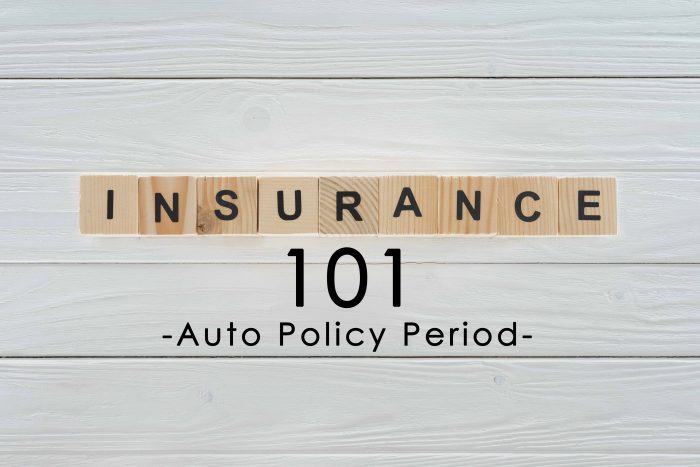Insurance Term of the Day: (Auto) Policy Period

Insurance Term of the Day: (Auto) Policy Period
Our calendars are flooded with important dates that we must remember. Birthdays, doctors appointments, kids’ sports games, the list is seemingly never ending. It’s understandable that one may lose track and forget an important date-unless it’s an anniversary. Good luck with that.
Aside from your anniversary, it’s also crucial to remember another date: the day your insurance policy expires. Insurance isn’t always the first thing on your mind. However, you should always bare in mind the policy period of your insurance contract.
What is a policy period? Every policy has a policy period that is clearly stated on your insurance declarations page. The policy period starts on the day the policy is issued, which can be any day of the month. A policy period is important because it gives the dates that the policy is in force. Any event that occurs before or after the policy period would not be covered by the insurance.
The length of a policy period is determined by your specific insurance company. There are a few options that most insurance companies offer: a six-month policy, a year-long policy, and, in special circumstances, a month to month policy. Starting from the effective date, you will have coverage for the following six months, so long as the bill is paid on time each month. If your bill is not paid, the policy will be cancelled, leaving you uninsured.
Another reason why policy periods are significant is because often, the policy period indicates the due date of your payments. Missing or forgetting this date could mean you miss a payment.
Where is the policy period located? You can typically find your policy period on your declarations page.
When looking at your policy period dates, don’t mistake the “policy date” with the “effective date.” The policy date is mentioned within the contract of your policy. For example, the policy date is used when discussing grace period expiration dates, etc. However, the “effective date” is the date that the insurance company became legally liable for you and your property.
What happens at renewal? When your policy term ends, you have the choice to renew your policy or shop around. If your insurance company chooses to non-renew you, you must find coverage elsewhere. Otherwise, you’re risking a lapse in coverage and an increase in rates.
Have you ever noticed that everything happens at the most peculiar time? Don’t be caught off guard without insurance by missing your renewal date.
Do you have questions about your insurance? Find an insurance agent near you with our Agent Finder
Search All Blogs
Search All Blogs
Read More Blogs
Step Back in Time: 7 Small Towns with Unique American Atmospheres
Discover America’s most atmospherically unique small towns.
Beyond the Bar: Customer Service Lessons from the Best Bartenders
Unlock customer service secrets from your favorite bartender.
Your Safety Net Has a Safety Net: Understanding the Life Insurance “Free Look” Period
Discover your life insurance policy’s “free look” period.
From Edsel to Yugo: Three Automotive Flops That Made History
The biggest blunders in automotive history.
Stay or Go? Why Improving Your Current Home Might Be Your Best Move Yet
Love your home, don’t leave it! Discover why improving beats moving.
The Unforgettable Eight: Women Who Captured Our Hearts
Meet the eight women who are loved by all.
Elevate Your Enterprise: 11 Smart Ways to Boost Business Professionalism
Boost your business’s professionalism without breaking the bank.
Lightening the Load: A Guide to Decluttering for Your Loved Ones
Declutter for peace of mind, yours and theirs.
Smart Car Buying: Beyond the Sticker Price
Unlock the hidden costs of car ownership.
6 Simple Steps to Supercharge Your Home Security
Simple, affordable ways to protect your home.










